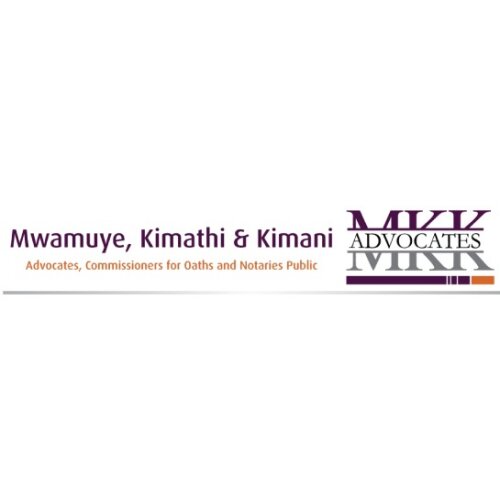Best Mining Law Lawyers in Kisumu
Share your needs with us, get contacted by law firms.
Free. Takes 2 min.
List of the best lawyers in Kisumu, Kenya
About Mining Law in Kisumu, Kenya
Mining Law in Kisumu, Kenya, refers to the legal framework that regulates the exploration, extraction, processing, and sale of minerals within the Kisumu region. Kisumu lies in the western part of Kenya and is known for deposits of minerals such as gold, sand, and stones. Due to increased interest in mining activities, both at small-scale and large-scale levels, the region is governed by both national and county-level mining laws. The primary goal of Mining Law is to ensure sustainable exploitation of mineral resources, environmental protection, fair benefit sharing, and compliance with safety standards.
Why You May Need a Lawyer
There are various situations in which a person or company involved in mining activities in Kisumu might require the services of a qualified lawyer. Common scenarios include:
- Applying for and obtaining mining licenses or permits
- Land disputes related to mining operations
- Negotiating contracts with mining partners or suppliers
- Ensuring compliance with environmental regulations
- Handling community compensation and benefit-sharing agreements
- Resolving employment issues and safety-related claims from workers
- Dealing with allegations of illegal mining or encroachment
- Advising on taxation and royalties for extracted minerals
- Guidance during government audits or investigations
- Assistance with export requirements and cross-border mineral sales
Local Laws Overview
Mining Law in Kisumu is primarily guided by Kenya’s Mining Act, 2016, but also incorporates local Kisumu County regulations. Key aspects of mining law relevant to Kisumu include:
- Licensing and Permits: All mining activities require government-issued permits, whether for prospecting or commercial mining. Small-scale miners also need registration.
- Community Participation: The law mandates public consultations and benefit-sharing agreements with communities affected by mining activities.
- Environmental Management: Mining operations must have approved Environmental Impact Assessments and follow environmental guidelines to minimize harm.
- Land Rights: Mining on private, communal, or government land requires proper agreements and may involve compensation or resettlement.
- Safety Standards: Companies and individual miners must adhere to occupational health and safety standards to protect workers and local residents.
- Royalties and Taxes: Payments must be made to both national and county governments based on the value of extracted minerals.
- Dispute Resolution: Disagreements may be resolved through mediation, tribunals, or the courts, depending on the nature of the dispute.
Frequently Asked Questions
What types of mining licenses are available in Kisumu?
The main types are prospecting licenses, mining licenses, and retention licenses. There are also permits for small-scale miners and special licenses for exploration.
How do I obtain a mining license in Kisumu?
You must apply to the Ministry of Mining and ensure compliance with both national and county requirements, including submitting Environmental Impact Assessment reports and holding community consultations.
Can I mine on my own land in Kisumu?
Owning land does not automatically grant you mining rights. You must apply for the relevant mining license, and government approval is required even for mining on your property.
What are the environmental requirements for mining in Kisumu?
Miners must conduct a full Environmental Impact Assessment and get approval from the National Environment Management Authority. Regular monitoring and adherence to environmental protection measures are required.
Do I need to compensate local communities if I start a mining project?
Yes, Kenya’s Mining Act requires benefit-sharing arrangements with local communities, including compensation or support for resettlement if mining affects their land or livelihoods.
Who regulates mining activities in Kisumu?
The Ministry of Mining is the national regulator, while Kisumu County Government also plays a role in oversight, especially for small-scale and community-based mining.
What should I do if someone is mining illegally on my land?
You should notify local authorities or police immediately and consult a lawyer to help file a complaint and protect your property rights according to the law.
How are mining disputes resolved in Kisumu?
Disputes may be settled by negotiation, mediation, or through mining tribunals and courts, depending on the issue and parties involved.
Are there taxes and royalties for mining in Kisumu?
Yes, miners must pay royalties to the national government and may also pay county taxes or fees. Rates depend on the type and value of minerals mined.
Can foreigners own mining licenses in Kisumu?
Foreigners can apply for mining licenses, but there are requirements regarding Kenyan ownership percentages, especially for small-scale operations. Consult legal counsel for specific requirements.
Additional Resources
- Ministry of Mining: The main government body overseeing mining activities in Kenya.
- Kisumu County Government: Handles local mining regulations, permits, and community engagement.
- National Environment Management Authority (NEMA): Responsible for environmental approvals and compliance monitoring.
- Kenya Chamber of Mines: Industry association offering support and information to miners and investors.
- Environmental and Legal Aid Organizations: Offer guidance, support, or representation specifically on mining and land-related rights.
Next Steps
If you are involved in or planning to engage in mining activities in Kisumu, consider the following steps:
- Consult with a qualified mining lawyer familiar with Kisumu and national mining regulations.
- Gather and organize all relevant documents, such as land ownership papers, existing permits, and business registration certificates.
- Engage with the local community and fulfill all mandatory community participation and benefit-sharing processes.
- Contact the Ministry of Mining or Kisumu County offices to verify licensing requirements and application procedures.
- Ensure strict compliance with environmental and safety regulations to avoid penalties or shutdowns.
- If you encounter legal challenges or need guidance, act promptly and seek professional legal advice to protect your interests and investments.
Lawzana helps you find the best lawyers and law firms in Kisumu through a curated and pre-screened list of qualified legal professionals. Our platform offers rankings and detailed profiles of attorneys and law firms, allowing you to compare based on practice areas, including Mining Law, experience, and client feedback.
Each profile includes a description of the firm's areas of practice, client reviews, team members and partners, year of establishment, spoken languages, office locations, contact information, social media presence, and any published articles or resources. Most firms on our platform speak English and are experienced in both local and international legal matters.
Get a quote from top-rated law firms in Kisumu, Kenya — quickly, securely, and without unnecessary hassle.
Disclaimer:
The information provided on this page is for general informational purposes only and does not constitute legal advice. While we strive to ensure the accuracy and relevance of the content, legal information may change over time, and interpretations of the law can vary. You should always consult with a qualified legal professional for advice specific to your situation.
We disclaim all liability for actions taken or not taken based on the content of this page. If you believe any information is incorrect or outdated, please contact us, and we will review and update it where appropriate.









